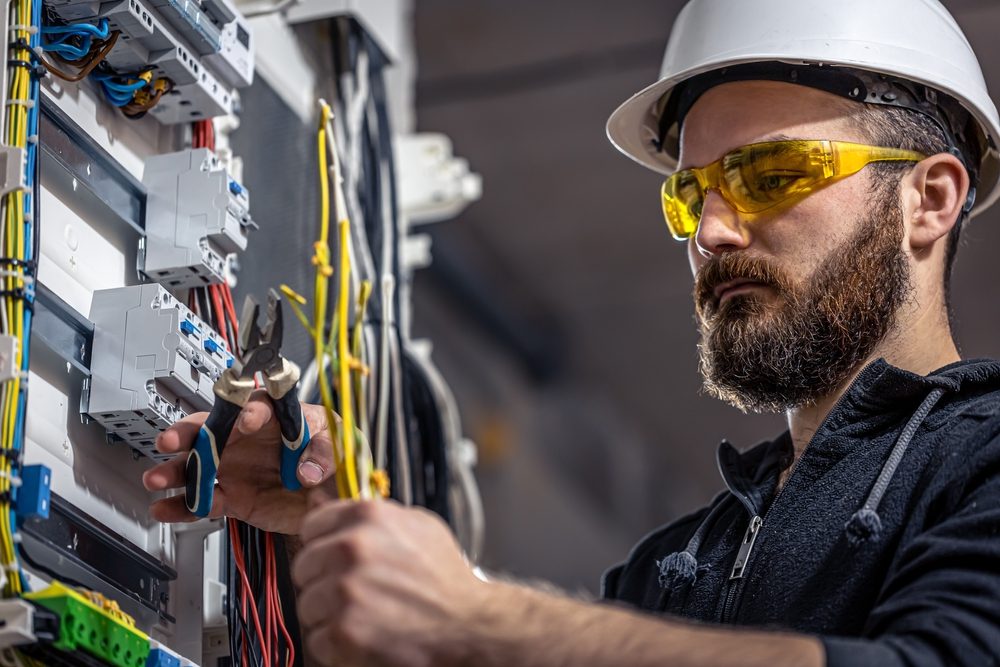Can Electricians Make $100,000 A Year?
Introduction: The Potential Earnings of Electricians
In today's world, where the demand for skilled tradespeople continues to rise, many people are asking a critical question: Can electricians make $100,000 a year? The short answer is yes, but it’s not as straightforward as it may seem. Various factors influence an electrician's earning potential, including experience level, geographical location, specialization areas, and even the economy at large.
This article will take a deep dive into the various aspects affecting an electrician's salary and explore how one can navigate their career toward that six-figure income. Let's break it down step by step.

Understanding Electrician Salaries: A Comprehensive Overview
National Averages vs. Local Earnings
Electricians across the United States earn varying salaries depending on multiple factors. According to the U.S. Bureau of Labor Statistics (BLS), the median annual wage for electricians was approximately $56,900 in 2020. However, this figure fluctuates greatly based on location and specialization.
Factors Influencing Salary
- Entry-level electricians typically start with lower wages.
- Experienced electricians often earn significantly more.
- Regions with higher costs of living tend to pay more.
- Urban areas often have greater demand for electricians.
- Residential versus commercial versus industrial work rates differ.
- Specialized fields like renewable energy can lead to higher earnings.
- Unionized electricians may receive better wages and benefits.
- Non-union positions can vary widely in pay.
Can Electricians Make $100,000 A Year? Exploring the Possibilities
So back to our burning question: Can electricians make $100,000 a year? Yes! In fact, many experienced electricians do achieve this milestone through various avenues.
1. Advanced Training and Certifications
Investing in further education can enhance your skills and marketability:
- Specialized training programs can lead to higher-paying jobs.
- Certifications in specific electrical systems or technologies can also boost earning potential.
2. Specializing in High-Demand Areas
Electricians who specialize in high-demand sectors such Ewing Electric Co as solar energy installation or automation often command premium rates:
| Specialization | Average Annual Salary | |------------------------|----------------------| | Solar Panel Installation | $70,000 - $90,000 | | Industrial Electrician | $70,000 - $95,000 | | Commercial Electrician | $60,000 - $85,000 |
3. Starting Your Own Business
Owning an electrical contracting business comes with its risks but also offers the potential for high rewards:
- Business owners set their own rates and take on diverse projects.
- This option allows for scalability and growth opportunities.
4. Working Overtime or On Call
Many electricians increase their earnings by taking on overtime shifts or being available for emergency calls:
- Overtime rates can significantly boost annual income.
- On-call work may come with additional premiums.
The Journey to Becoming an Electrician
Choosing the Right Pathway: Education Requirements
If you're considering becoming an electrician yourself to chase after that six-figure salary goal, there are several pathways you might consider:
The Apprenticeship Program: A Critical Step
One of the most common routes into the profession is through apprenticeship programs that combine hands-on training with classroom instruction:
- Typically lasts 4-5 years.
- Provides valuable experience while earning a wage.
Specializations Within Electrical Work: The Key to Higher Income
Residential Electricians
Residential electricians generally work on home wiring systems:
- They handle installations like lighting fixtures and circuit upgrades.
Commercial Electricians
Commercial electricians work in office buildings and other commercial spaces:
- They often deal with complex systems requiring specialized knowledge.
Industrial Electricians
These professionals focus on large-scale machinery and equipment found in factories:
- Usually require advanced technical skills and safety training.
The Role of Networking in Advancing Your Career
Building Relationships Within Your Industry
Networking can open doors you didn't even know existed:
- Attending industry events helps build relationships with peers.
- Joining professional organizations increases credibility.
The Importance of Continuing Education for Electricians
Staying Current With Technology
To maximize your earning potential as an electrician:
The Impact of Local Demand on Earnings: Case Studies
Urban vs Rural Job Markets
In urban settings like Madison Park:
- The demand for skilled electricians tends to be higher due to ongoing construction projects.
Conversely, rural areas might offer fewer job opportunities but could still pay competitively based on scarcity.
Case Study: Madison Park Electrician Salaries
Local data reveals that electricians in Madison Park often command salaries above the national average due to increased demand from local developments:
| Position | Average Annual Salary | |--------------------------|----------------------| | Master Electrician | $85,000 | | Journeyman Electrician | $65,000 | | Apprentice | $40,000 |
FAQs About Becoming an Electrician: What You Need to Know
1. What is the average salary of an electrician?

2. How long does it take to become a licensed electrician?
Typically between 2 to 5 years depending on your chosen path (apprenticeship vs vocational school).
3. Do electricians need certifications?
Yes! Most states require licensure; additional certifications can enhance job prospects and salary potential.
4. Is it worth specializing as an electrician?
Absolutely! Specializations can lead to much higher salaries due to increased demand in those areas.
5. Can I make six figures as an electrician?
Yes! Many experienced electricians do reach or exceed that mark through various means such as overtime or owning businesses.
6. What’s the job outlook for electricians?
The job outlook is positive; employment is projected to grow faster than average over the next decade due to increasing building projects.
Conclusion: Charting Your Course Toward Success as an Electrician
So there you have it—while challenging at times, becoming an electrician offers numerous pathways toward achieving a lucrative career that can indeed culminate in six figures annually! Whether you're just starting out or looking at ways to advance your career through specializations or business ownership—there's no shortage of opportunities awaiting you!

Remember that location matters—if you're based near bustling areas like Madison Park where demand surges—it enhances your chances significantly! As we’ve discussed throughout this article—from education requirements and networking opportunities all the way down to specialization choices—the road ahead lies open for those willing to put in hard work coupled with smart planning!
Now is a great time to invest in yourself—you never know where this journey might lead!